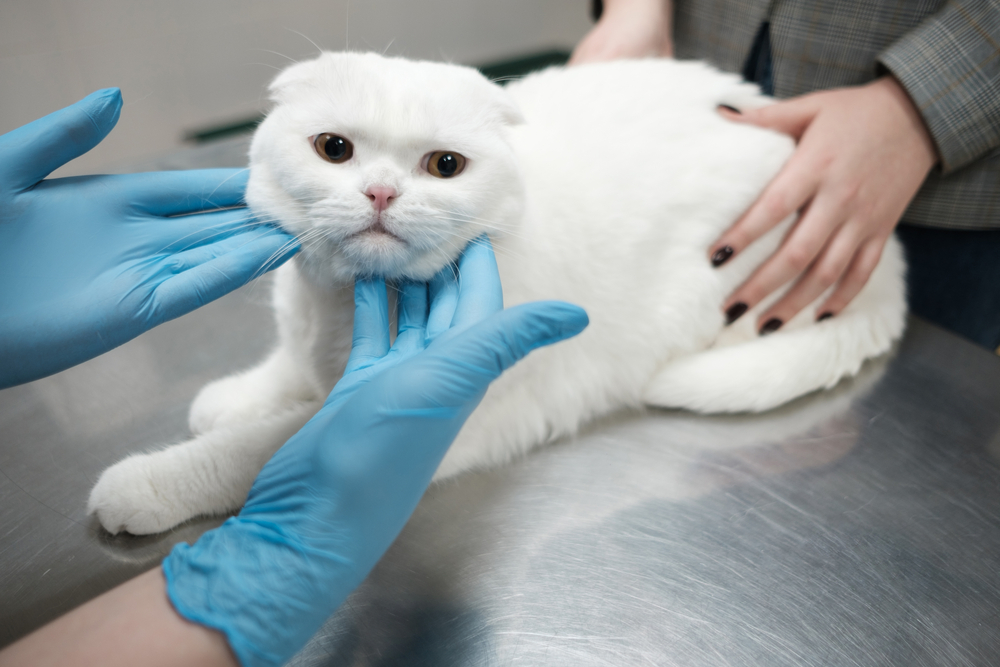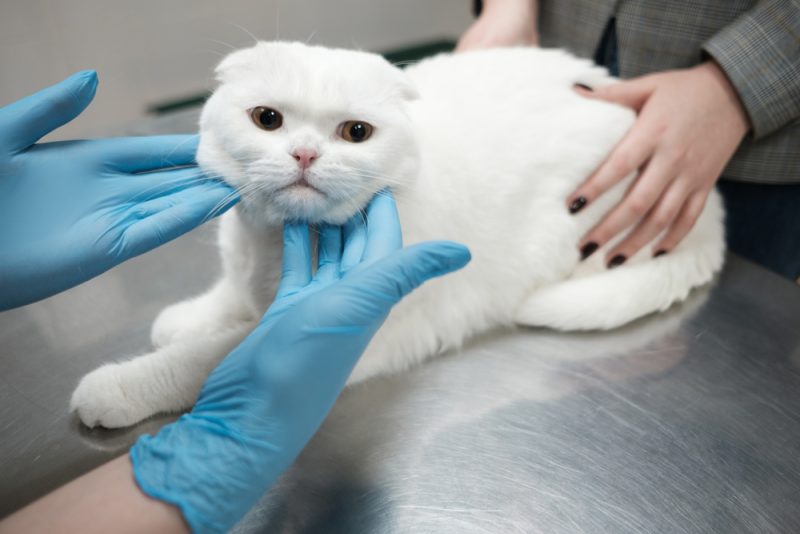Click to Skip Ahead
Asthma is an inflammatory lung disease that makes it hard for cats to breathe, which can result in coughing, while hairballs are what you get when cats throw up fur accumulated in their digestive tracts. Cats with asthma cough and struggle to breathe but don’t throw up.
Those with hairballs typically vomit after retching, usually some combination of fur and mucus. Asthmatic pets stay put while coughing and have unbent necks and backs, while cats with hairballs often arch their backs and move while throwing up.

What Is Asthma?
Asthma is an inflammatory lung condition triggered when cats breathe in pollen, dust, or other irritating substances such as smoke, candle fumes, or air freshener scents. Stress can make the condition more challenging to manage.
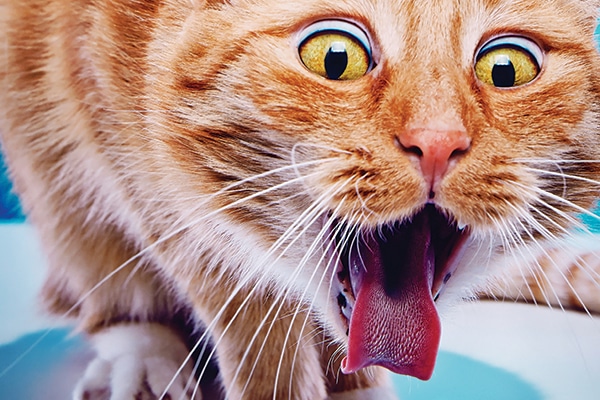
What Are the Signs of Asthma?
Coughing is the most common sign of feline asthma, although it’s frequently mistaken for the retching and vomiting seen when cats produce hairballs. Wheezing and difficulty breathing also commonly occur, and signs are often intermittent.
How Is the Condition Diagnosed?
Veterinarians rely on information provided by pet parents and blood tests and X-rays to diagnose breathing problems in cats. Fecal testing is also sometimes necessary. Consider taking a video to show your veterinarian what’s happening with your cat.
How Is Asthma Treated?
Asthma is a chronic condition that usually requires lifetime management. Treatment is geared towards keeping the inflammation that makes it difficult for cats to breathe under control. Step one is determining what triggers cats’ breathing problems; step two involves minimizing their exposure to those substances.
Cats usually need to take anti-inflammatory medication to manage the condition even when they’re not actively wheezing or showing other signs of breathing distress. Most require treatment for the rest of their lives to keep things under control.
Overweight pets benefit from dropping a few pounds to reduce the stress on their hearts and lungs. , but remember to always chat with your veterinarian before switching your cat to a new food.
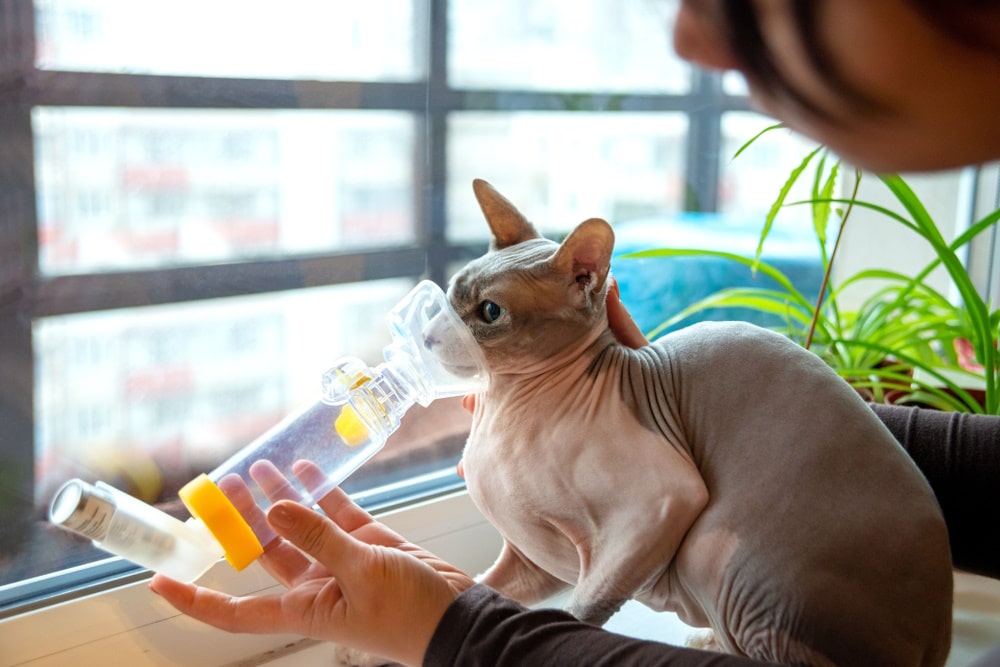
Can Asthma Be Prevented?
While asthma can’t be prevented, some characteristics put cats at higher risk for developing the condition. Being overweight appears to make it more likely that a cat will come down with the disease. There’s also evidence that Siamese cats may be more likely to end up with the disease than other pets.

What Are Hairballs?
Hairballs are accumulations of fur that don’t move through cats’ digestive systems as they normally should, which causes them to throw up. Hairballs usually look like tubes of wet hair, but they can also resemble blobs of runny poop or small dribbles of brown liquid.
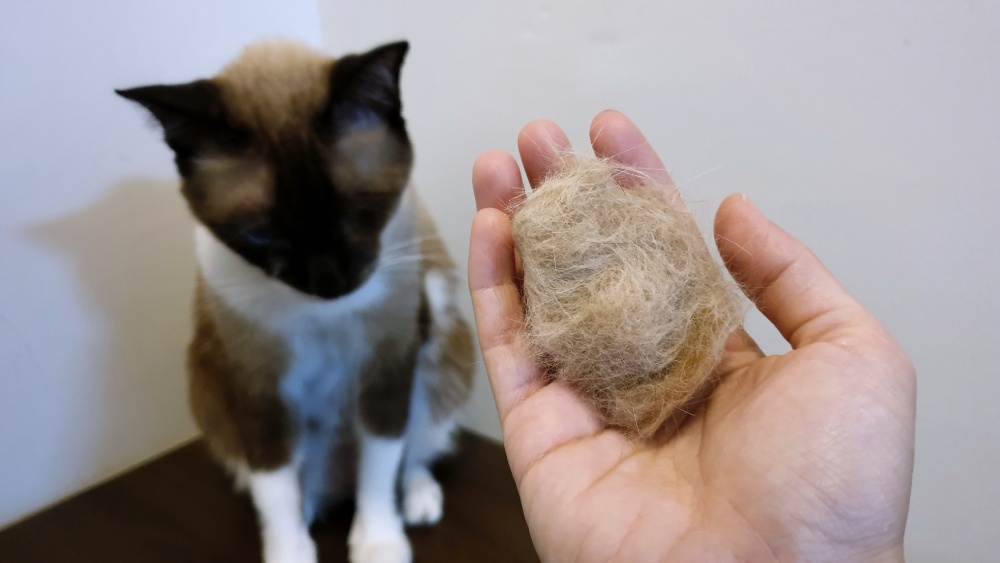
What Causes Hairballs?
Fur is hard for cats to digest, so when too much of it gets into the digestive tract, hairballs occur. Cats with long hair and those with skin conditions are typically more inclined to develop the condition. They’re also commonly seen in cats who groom themselves too much because they’re stressed out or bored.
Diseases such as inflammatory bowel disease, parasitic worms, lymphoma, and pancreatitis can also be responsible for creating digestive issues that can lead to hairballs. Food allergies and foreign bodies that end up stuck in cats’ digestive systems can be related to the development of hairballs.
How Can I Tell if My Cat Is Vomiting Because of Hairballs?
Cats generally show signs of improvement quickly after bringing up hairballs. Those who vomit due to other causes often have other signs of illness, such as not being interested in eating, lack of energy, diarrhea, weight loss, vomiting, constipation, or drinking more water than usual.
Reach out to your veterinarian if your cat attempts to throw up several times in a 24-hour period without success or if they have hairballs more than once a month or show any of the other signs previously mentioned.
How Are Hairballs Treated?
A hairball treatment depends on what’s leading to the problem if a cat’s hairballs are linked to an underlying medical condition, but there are several options that are appropriate for pets with occasional hairballs, such as high-fiber anti-hairball treats and dietary formulations.
There are also over-the-counter hairball prevention medications that are designed to please feline palates. Always check with your veterinarian before giving your cat anything for hairballs, including over-the-counter medications and “natural” remedies.
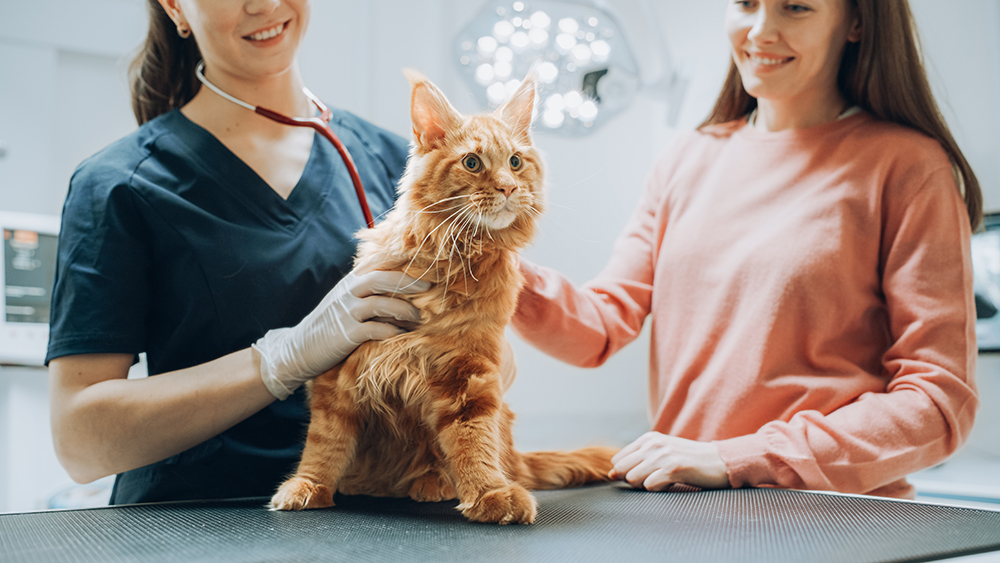

Are There Ways to Minimize the Development of Hairballs?
Yes. Reducing the amount of fur cats ingest can go a long way toward preventing the development of hairballs. Regularly brushing cats removes some of the fur that would otherwise end up in their digestive tracts after grooming.
Cats with long fur benefit from daily brushing, and grooming can be a fantastic bonding activity many pets look forward to and enjoy. A little extra fiber can also help keep things moving efficiently through cats’ digestive tracts but speak to your veterinarian before making any changes to your companion’s diet.
If you are looking for recommendations on the best cat brush, you should check out Hepper Cat Brush. You will hardly find different brush with so many pros - easy to clean, easy to use, durable and effective. Simply everything you need from a cat brush. Click here to order yours today.
At Catster, we’ve admired Hepper for many years and decided to take a controlling ownership interest so that we could benefit from the outstanding designs of this cool cat company!

Conclusion
Asthma and hairballs can make cats cough, but they have different causes and involve separate parts of the body. Asthma is a lung condition related to inflammation, while hairballs get started when fur accumulates in pets’ digestive tracts and doesn’t pass through.
Telling the difference between the two conditions is relatively easy. Cats with asthma often cough but don’t expel anything as a result of their efforts. Pets dealing with hairballs leave evidence of their digestive difficulties in the form of tubular collections of fur and mucous.
Featured Image Credit: MakeStory Studio, Shutterstock

